Vocabulary Building Normal Alphabet Worksheets for Ages 5-6
7 filtered results
-
From - To
Discover our engaging Vocabulary Building Normal Alphabet Worksheets designed specifically for children ages 5-6. These worksheets aim to enhance young learners' vocabulary through fun and interactive activities. Each worksheet features letters of the alphabet paired with vibrant illustrations, providing children with visual cues that support word recognition and understanding. Designed to make learning enjoyable, these resources encourage children to identify, read, and incorporate new words into their everyday language. Perfect for use at home or in the classroom, our printable worksheets foster essential early literacy skills, setting the foundation for a successful reading journey. Explore our collection today and watch your child thrive!
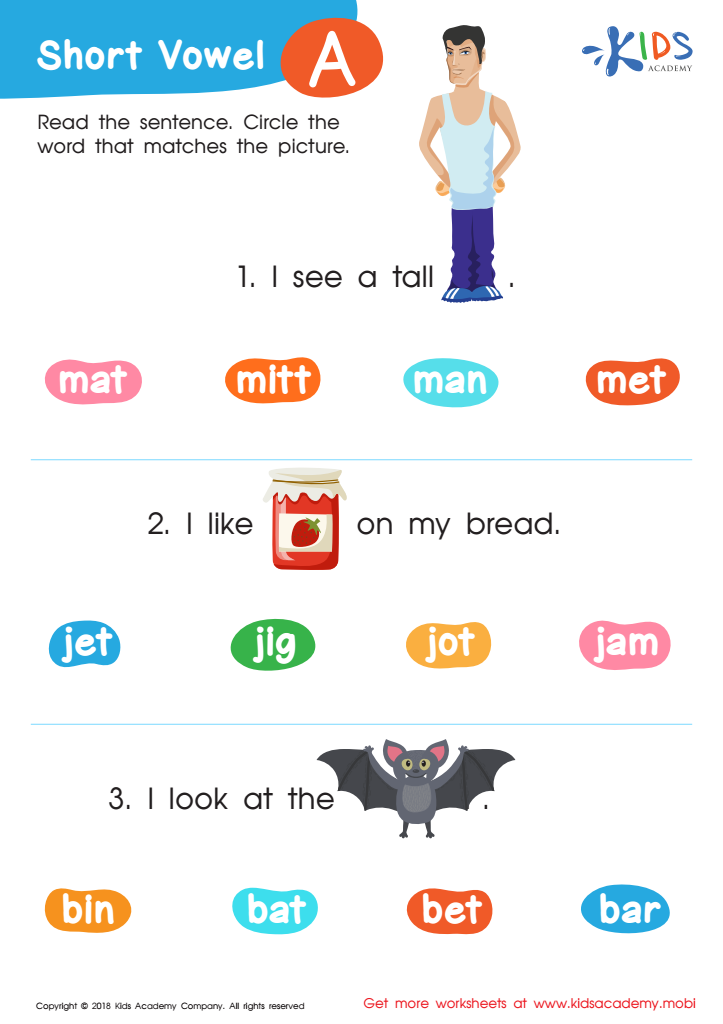

Short Vowel /a/ Worksheet
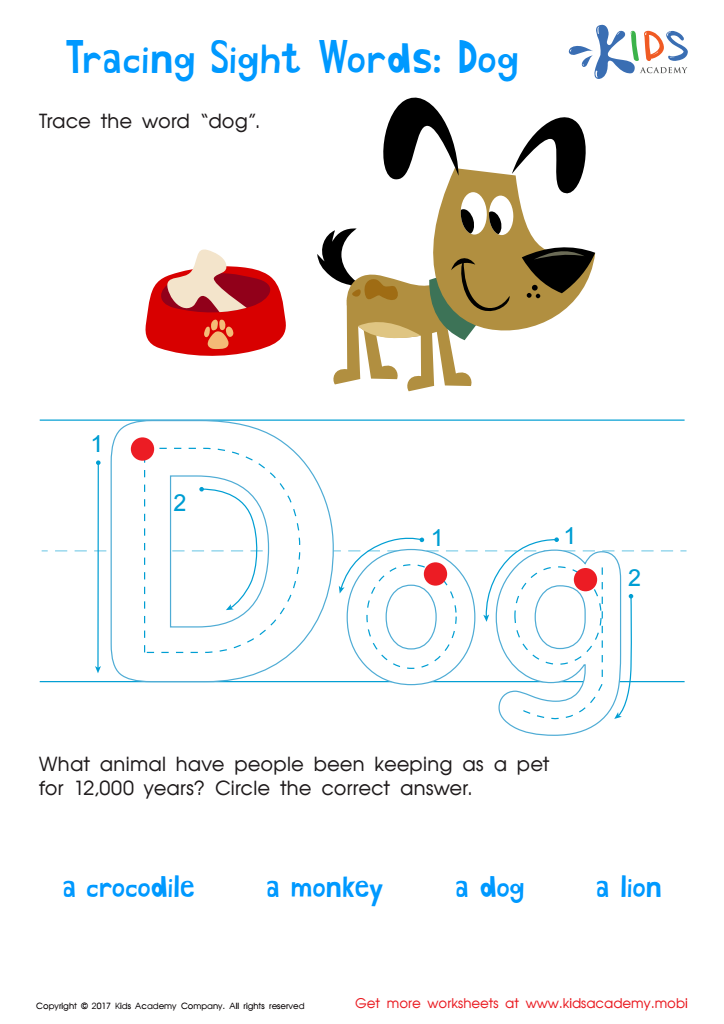

Dog Worksheet Sight Words Worksheet
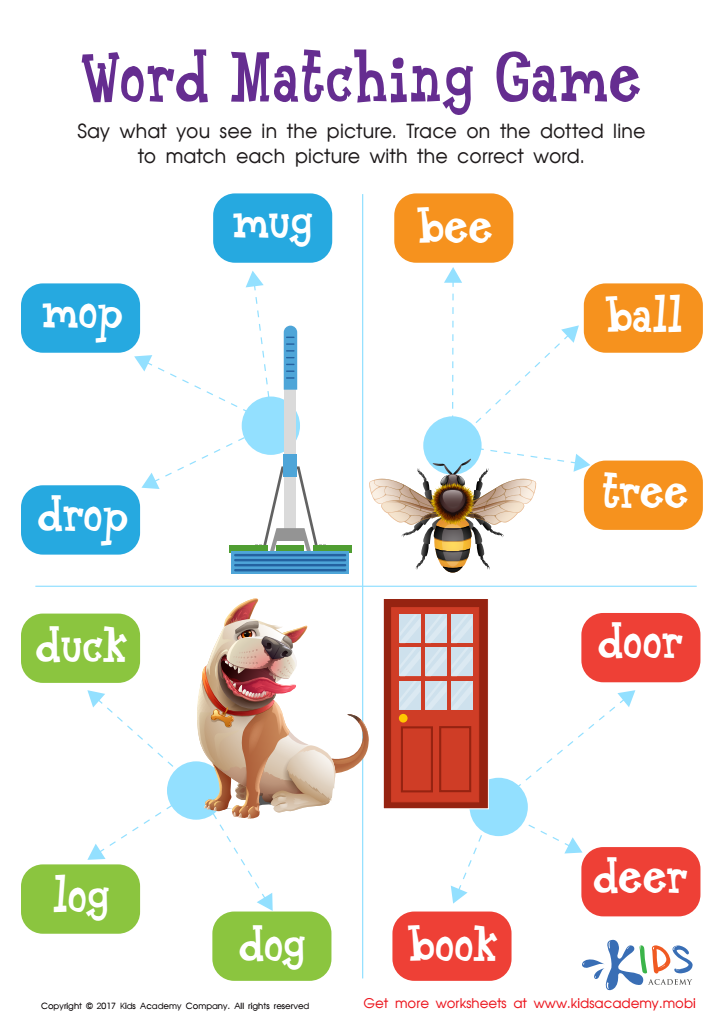

Word Matching Game Worksheet
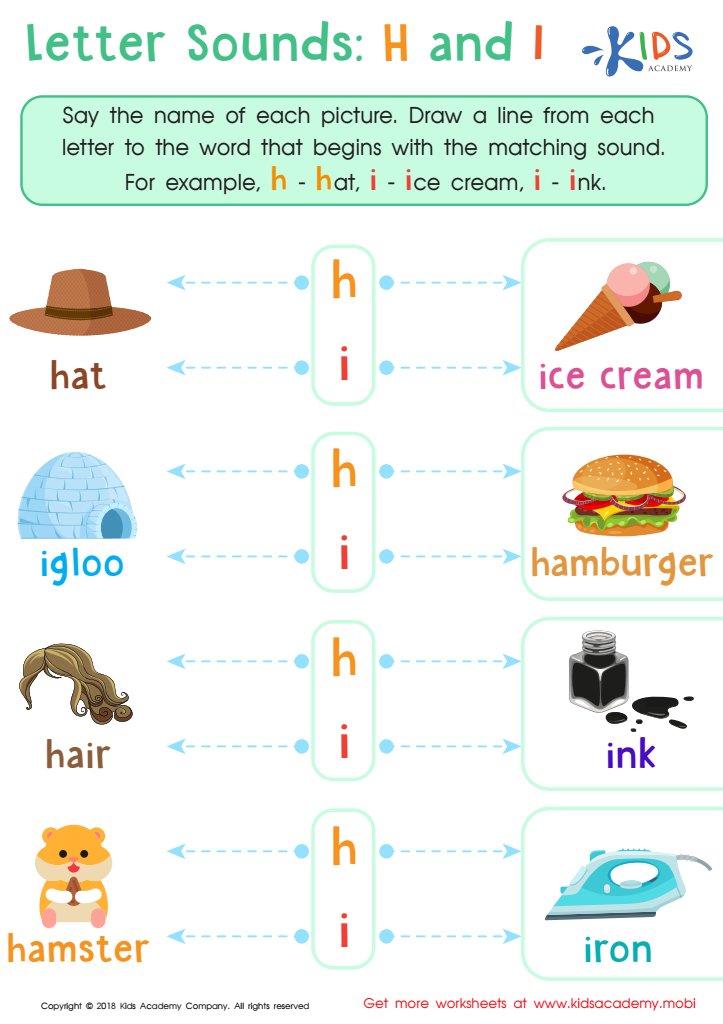

Letter H and I Sounds Worksheet
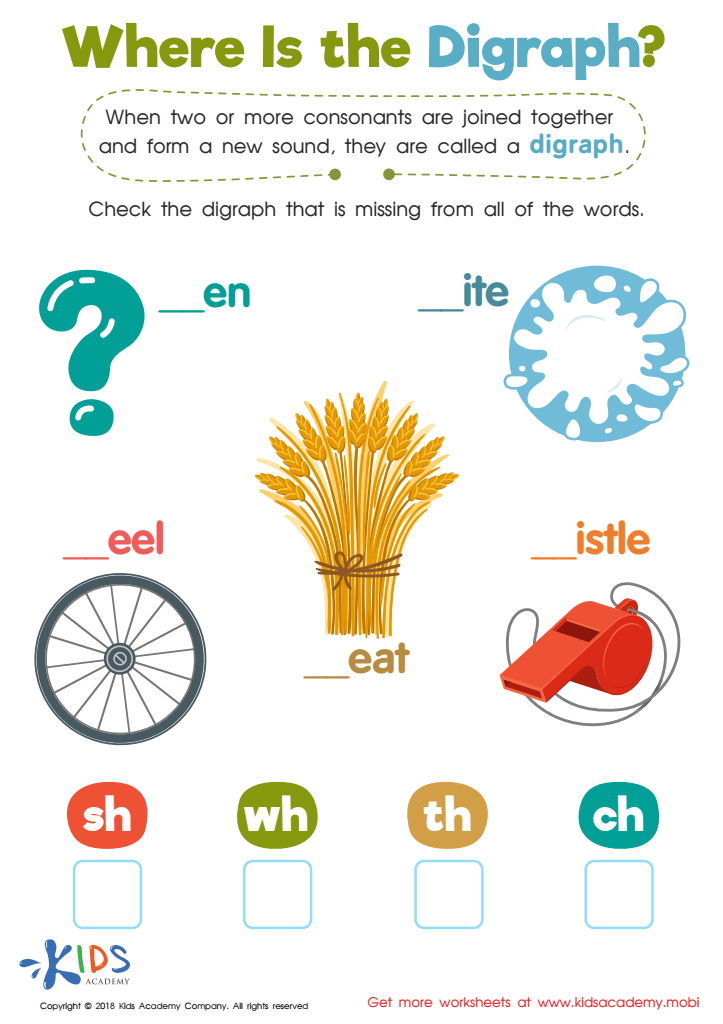

Where Is the Digraph? Worksheet
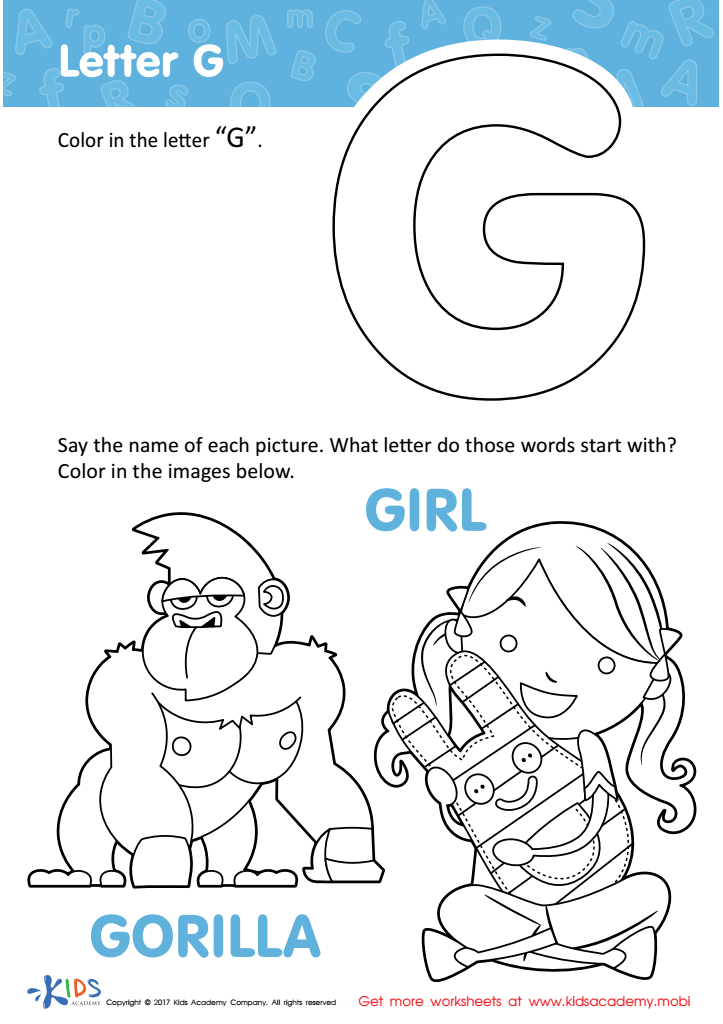

Letter G Coloring Sheet


Words with sound p Reading Worksheet
Vocabulary building is crucial for children aged 5-6 as it lays the foundation for their overall literacy and communication skills. At this stage, children are developing their understanding of language, and exposure to a rich vocabulary significantly enhances their ability to express thoughts, ideas, and feelings. Parents and teachers should prioritize vocabulary development as it fosters reading comprehension, writing skills, and oral communication, key components of academic success.
At ages 5-6, children's brains absorb language rapidly, making it an optimal time for vocabulary learning. Utilizing the normal alphabet allows them to associate sounds with letters, promoting phonemic awareness—a critical skill for reading. Engaging activities such as storytelling, singing, and interactive games focused on new words can make learning enjoyable and effective.
Moreover, a robust vocabulary enhances social interactions and confidence. When children can articulate their thoughts well, they are more likely to engage in conversations, build relationships, and contribute to group discussions. This empowerment fosters a love for learning and exploration.
In conclusion, investing in vocabulary building at this age is essential. It not only supports academic achievement but also nurtures communication skills that will serve children throughout their lives. Parents and teachers play a pivotal role in guiding this developmental journey.
 Assign to My Students
Assign to My Students















